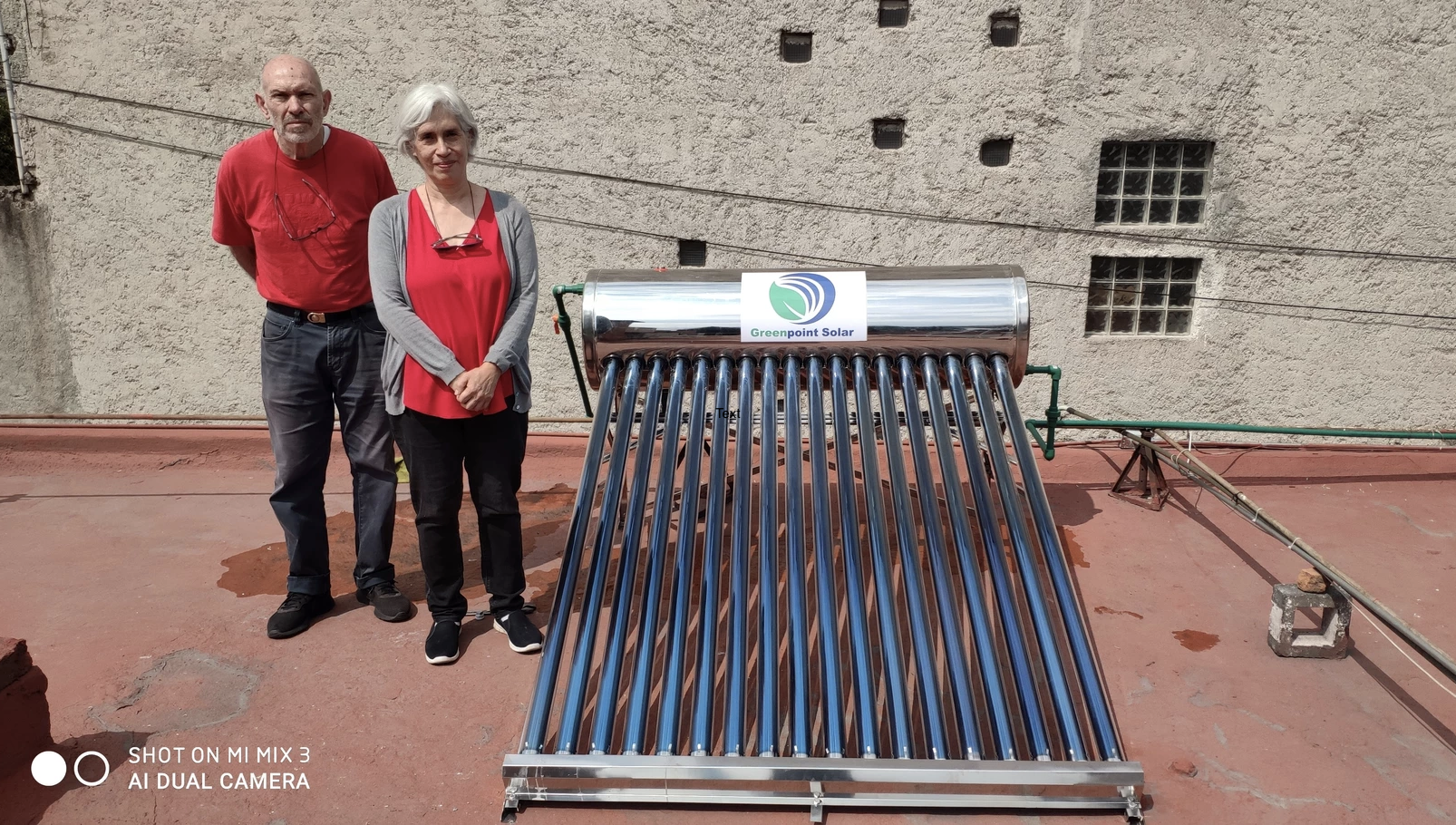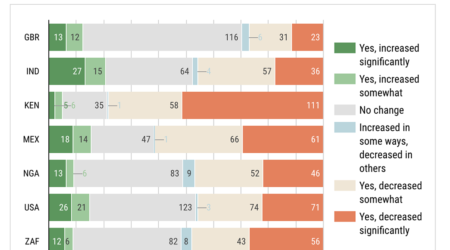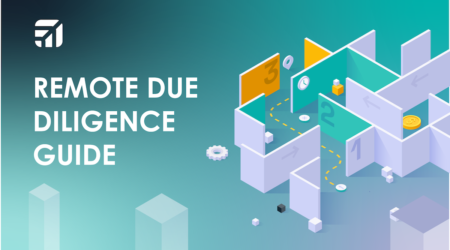Mexicans say that PAYGo appliances are an investment for a better life, not an expense

To be truly inclusive, financial service providers need to go beyond simply offering lower prices. They need to evaluate the best channels to reach customers, develop more engaging user experiences, and design products and features that are tailored to the needs and preferences of low-income, underserved populations. The repayment flexibility offered by PAYGo providers has long been recognized as exactly the type of product innovation that embodies these attributes.
Catalyst Fund portfolio company Graviti is a PAYGo provider that is bringing sustainable home appliances, like solar water heaters, to underserved households in Mexico. Graviti finances the purchase and installation of a solar water heater and remote meter, which clients repay in monthly installments over one to two years.
Catalyst Fund conducted research with Graviti users and found that users like the product because they expect it will eventually decrease utility expenses and free them from an endless stream of gas bills. As such, users are willing to absorb the higher cost of the solar water heater because they see it as an investment in a household asset that will reliably deliver hot water over time, providing long-term savings and simplicity.
This suggests that the advantages of PAYGo, particularly in Latin America, go beyond just providing flexibility and savings and include decreasing financial stress. By transforming an ongoing expense stream (like gas bills) into a time-bound investment that provides the household with an enduring asset, PAYGO eases financial management, thereby decreasing the mental burden for households, which is extremely beneficial during difficult times like those presented by the COVID-19 pandemic.
PAYGo offers affordability and simplicity
Experts have long realized that products for vulnerable populations need to be more than low-priced. After all, poverty is characterized by low income amounts, but also amounts that are unreliable, inconsistent, variable (lumpy), and subject to greater market and environmental risks. Over the past few decades, inclusive financial service providers have developed a number of product innovations to account for the complexity of these income streams, from group lending, to weather-based index insurance, to alternative credit scoring.
However, until recently, few credit providers had been able to introduce flexibility into loan repayments, although experts have long highlighted the need. Without flexibility, users with seasonal agricultural payments or unpredictable daily-wage incomes are still tied to calendar-based repayment schedules. This paradigm shifted several years ago with the advent of PAYGo, which enables flexible repayment for financed household appliances via remote meters that control access to the appliance. A Graviti user noted these benefits:
Others could be interested because of the convenience of payments. The heater is efficient, and the payments are easy to meet.
The flexibility offered by PAYGo allows users to make payments according to their income flows, thereby allowing them to avoid arrears and default, or avoid the need to seek out high-cost credit to meet repayment deadlines. As such, flexibility makes the product inherently more affordable by eliminating arrears and negative balances. One Graviti user told us how he was able to delay payments while his income was thin:
One of the windows of my bus is broken, and I haven’t been able to work for a month—I’m almost two weeks behind right now because I haven’t been able to work. I think that this coming Thursday I will catch up on my payments.
Catalyst Fund’s recent research in Mexico highlighted another element of affordability created by PAYGo services: simplicity. Low-income households have extremely complex financial lives, often balancing volatile income streams and costs. Flexibility allows users to decrease the cost of non-payment, as well as the stress it causes, helping to ease the mental burden of poverty. Users do not need to worry about scrambling to meet a repayment deadline or standing in line at the branch on payment day. They do not have to calculate accumulating interest payments or consider how to manage costs of varying sources of debt. One user highlighted this feeling of capability and the pleasant surprise of being able to pay without stress.
The first thing that impressed me was the payment possibilities – that I was actually able to meet them.
The value of bringing down financial stress is especially great among low-income families since their financial lives are complex and research has shown that low-income individuals can make poor decisions when faced with financial stress. By reducing the stress of rigid repayments and arrears, PAYGo allows low-income people to allocate cognitive resources more successfully, helping them to make better decisions on a day-to-day basis.
The cognitive load benefits of PAYGo will be even more dramatic in the long run, as the appliance allows households to fully eliminate an ongoing, potentially-lifetime expense stream, which can feel extremely burdensome. This long-run simplicity is especially valuable for low-income families because improved mental health can lead to improved financial incomes in the long run.
Altogether, users consider PAYGo products an “investment” that they hope will create savings in the long run. In fact, a Graviti user told Catalyst Fund researchers:
I spoke to my family, and we saw that it was a good option because you save on household expenses. Maybe it will take a year to pay off, but it is a long-term investment.
Maybe it is a bit expensive, but it is an investment for a year, and if there is financial solvency, it is an investment that is possible little by little.
The pandemic has further highlighted Graviti’s benefits for households in a socially-distant environment
Unsurprisingly, difficult economic circumstances, like those created by the COVID-19 pandemic, further highlight the value of flexible financial products. Users note that Graviti’s services will help them to save money:
I would say that the most valuable thing is to get a service that you will pay just one time, and afterwards, it will allow you to save by using a source that doesn’t pollute.
In fact, sales leads that did not purchase a Graviti system now regret that choice. They feel that a PAYGo system would have simplified their financial lives and helped them save in the long run, which could have been useful when the pandemic hit, noting:
If I would have gotten this solar system before the pandemic, It would have helped me out a lot. I mean, right now we are tight on money, so saving up on gas could have helped a bit, but still some help. I do regret not getting it earlier.
I think that right now, I would be very happy saving money, I would feel protected, or maybe not protected, but with some peace of mind knowing I have to spend less on natural gas. I just got cut to a half-time shift so any kind of saving means the world to me right now.
Moreover, users value the fact that the Graviti process is 100% digital and extremely fast; they apply online, and communicate via WhatsApp. They only need to send a photograph of their roof; they do not need to visit an office or fill out any paperwork.
I didn’t go to a competitor because of the quarantine, and who has time to even go to a store? We used to have two days to dedicate to the house, but now we have no time to rest.
Finally, payments can be made digitally, triggered by a reminder in the app or via WhatsApp, an additional benefit given the need for social distance during the pandemic.
[Paying] was a challenge at the beginning because I paid in my corner store, but they charged me a fee. I opened a bank account and got a debit card to pay in the Graviti app, and now I use it every week when I have to make my payment.
I pay in the app and with the card – I have barely contacted them via WhatsApp because everything is in the app.
Overall, Catalyst Fund’s recent research affirmed the profound value proposition of PAYGo among underserved populations, especially during the pandemic. The flexibility, affordability, simplicity, and ability to operate digitally and remotely that PAYGo enables have all proven powerful benefits during these difficult times. Looking forward, Graviti will bring this unique offering to more families with an expanded range of appliances and essential services, from water purifiers to electric scooters to solar panels. We are confident that Graviti’s thoughtful product design and commitment to customers will ensure their long-run success and positive impact.


